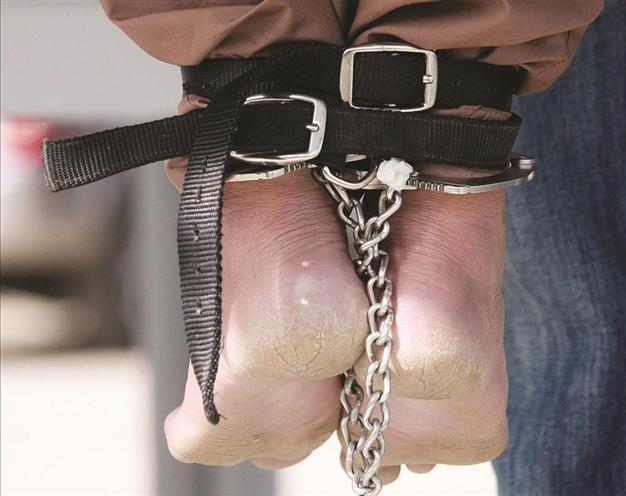Execution-free world getting closer: report
LONDON

Methods of executions include hanging, beheading, firing squad and lethal injection. AFP photo
Despite some disappointing setbacks in 2012, the global trend toward ending the death penalty continued, human rights group Amnesty International said April 9.
Countries such as India, Japan, Pakistan and Gambia that had not used the death penalty in some time, resumed executions in 2012, Amnesty revealed in its annual review of death sentences and executions. An alarming escalation in executions in Iraq was also highlighted in the report.
However, use of the death penalty continues to be restricted to a small group of countries, and progress toward its abolition was seen everywhere in the world, according to the group.
“The regression we saw in some countries this year was disappointing, but it does not reverse the worldwide trend against using the death penalty,” said Salil Shetty, secretary-general of Amnesty International.
“Only one in 10 countries in the world carries out executions. Their leaders should ask themselves why they are still applying a cruel and inhumane punishment that the rest of the world is leaving behind.”
An eye-for-an-eyeChina still tops the list, the organization said, followed by Iran, Iraq, Saudi Arabia and the United States. In its annual review, Amnesty counted 682 confirmed executions in 21 countries in 2012 – just two more than the tally in 2011. That figure does not include the number of executions in China, which executes more people than any other country but keeps the data strictly secret. Human rights activists estimate the annual figure at 6,000 to 8,000.
Hao Xingwang, a criminal law expert at Beijing’s Renmin University, believed that the number of executions would likely continue to fall as Beijing tightens its regulations. Public support for the death penalty, however, would remain strong for some years, he said. “The concept of an eye-for-an-eye has been well established since ancient times and will take a long time to change,” Hao told The Associated Press.
Iran came second on Amnesty’s list, with 314 officially confirmed executions.
The group said it was gravely concerned by developments in Iraq, which executed 129 people last year, almost double the 68 executions it carried out in 2011.
In Asia, India carried out its first execution since 2004 when it put Ajmal Kasab, the Pakistani gunman convicted in the 2008 Mumbai attacks, to death in November.
The U.S. executed 43 people in 2012, the same figure as in the previous year. A total of 77 new death sentences were imposed, the second lowest since the Supreme Court revised capital punishment laws in 1976, Amnesty said.
Methods of executions included hanging, beheading, firing squad and lethal injection. People faced the death penalty for a range of crimes including nonviolent drug-related and economic offences, but also for “apostasy,” “blasphemy” and “adultery.”
